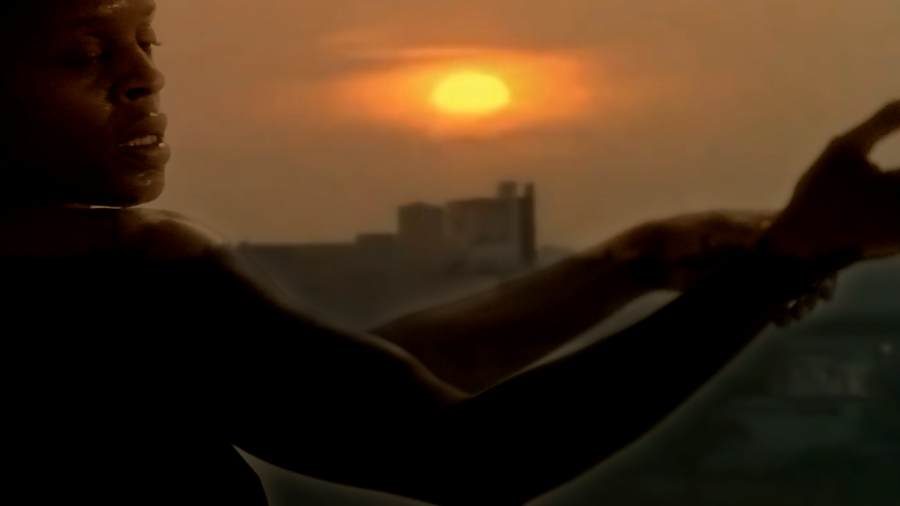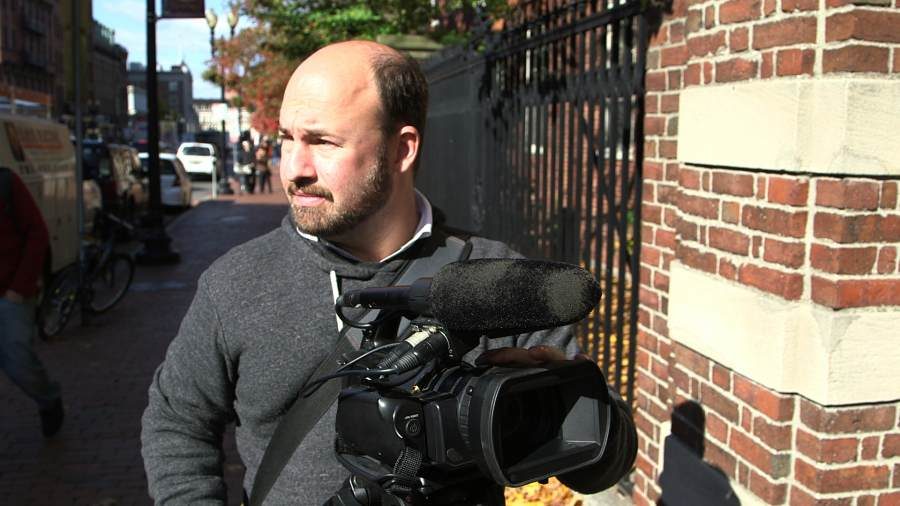

Andrew Rossi’s Bronx Gothic in which he profiles performance artist Okwui Okpokwasili as she goes on tour with her eponymous piece seems like quite the departure from his previous film, the Met Gala documentary The First Monday in May, which chronicled one of the most exclusive events in the world. While the latter celebrated creation through the filter of celebrity and luxury, the former explores what it’s like to create when you’re always on the fringe of society. Okpokwasili’s piece deals with trauma, loss and growing up as a black woman in America, with all its pros and cons. The performer doesn’t shy away from asking the tough questions and it’s remarkable to see how much she let Rossi’s camera capture. The film takes us uncomfortably close to her into a journey that proves to be unforgettable. I spoke to Rossi about the reasons that inspired him to make the film and working with Okpokwasili.
Am I wrong in thinking that this is the first documentary you’ve made that’s not about an institution?
Well, I think I’ve made maybe one other film that’s about just restaurateurs, Eat This New York, the first film I made, but yes, I’ve definitely done a lot of movies that focus on institutions so this is a departure where I focus on an individual.
How was it different to focus on a single person for you?
In some ways all my movies are about finding the human element in a story, and I think Bronx Gothic can feel impenetrable, Okwui Okpokwasili is someone I know well, we’re friends, so I was interested in bringing out her subjective experience of putting on the performance. Even though the piece is not about an institution, there’s a similar effort to look at something beyond the surface, to find a deeper meaning.
I never saw the performance live, so I was fascinated by how Okpokwasili speaks about using gothic literature elements in her show. How did you incorporate these elements into your cinematic take? I’m thinking how incredible those aerial shots of the graveyard were for instance.
Okwui describes the gothic element of the film as these memories that one can’t make go away, they’re like hallways or hidden spaces that one walks through and gets lost in. When we were shooting the performance we wanted to capture the subjective experience of Okwui performing, the aerial view of the performing space, and these fluctuations that occur on the stage when Okwui falls on the floor and dances, or when she confronts the audience, there’s almost a physical space that she embodies that’s like these gothic corners and hallways, where she evoked the different memories of the characters. That translates to some of the places that surround her as she goes on this road movie, there’s a feeling that all the space around her, whether it’s the graveyard or the subway, are almost haunted. We wanted the cinematography to reflect the spirits that follow her and that sense of foreboding. She mentions Jane Eyre, Wuthering Heights, Dracula and Doctor Jekyll and Mr. Hyde. She talks about a kind of infection.
I don’t remember her mentioning Dracula but it makes sense because there’s an epistolary nature in a part of her performance.
You know we didn’t include that in the final cut, but she talks about that.
Even if on the surface you don’t talk about an institution in the traditional sense, you are tackling the terrible institution of racism in America. Can you talk about why it’s important to have this film out right now?
That’s a good point, this is a movie about a very specific black woman’s experience in America and in the Bronx, New York, and yet Okwui’s mission is to create a flood of feeling for the black body as she says in the film. There’s a bigger idea or mission at stake, which is so critically needed right now when the conversation around social and political issues seems so polarized, and that’s the need to empathize with people who might seem different from ourselves.

Was there a moment when you and Okwui had a discussion about why you as a white male were the right person to make this film?
When I first approached her this did come up, how I as a white man would capture this uniquely female African American experience, and for me I have a fundamental philosophical approach as an artist in believing that an artist can have the creative capacity to address subjects that are foreign from one’s own background. In Bronx Okwui says she wants to vibrate with people including white men and women, Asian men and women, Latino men and women etc. It invites interpretation and engagement from a diverse audience, so I view my making of the movie as a document of the performance piece, to memorialize and honor it. And in bringing up the themes in Okwui’s process and combining them, it’s my personal response to her invitation. I’m sure a filmmaker from another background would have created a very different film, but this is my rendering.
The audiences that you show in the film seem to be predominantly female. Was this always the case?
That’s interesting. One of the most important creative choices I made was to capture the audience’s gaze and include them in the piece. My impression was that the audience in both Milwaukee and the Bronx was majority female. In Philadelphia I’d have to look at the footage again, it’s a piece that appeals to a broad range of people.
Did you shoot a version of the whole show and will it be released at some point?
There is a version at the Public Library archive which doesn’t include the audience, it’s just the performance.
Right, those archival recordings don’t have aesthetic flourishes or editing though. How did you approach the show from your viewpoint?
The overriding principle was to have an angle that would capture the entire stage and an angle that would capture Okwui in a subjective way. That really was trying to see her not as an object on the stage but a human being suffering through the pain of the characters she was bringing to life. We had four cameras in most cases, and in the editing we worked from different angles and in some cases combined moments from different venues to show the spectacle of the performance and Okwui’s interiority.
Okwui talks about how people assume the piece was autobiographical, which seems to me like the polar opposite of how people think of nonfiction filmmakers who are supposed to be impersonal and objective. What do you see of yourself in Bronx Gothic and the films you’ve made?
I’m always interested in looking at the creative process, and characters’ aspirations of achieving a creative goal, the trials and tribulations they go through. I made Le Cirque: A Table in Heaven which was about a restaurant, I grew up in a restaurant family and worked there a bit. I’m sure by making that film I was reliving in a grander scale the dynamic between my father and me. I was deeply touched by Okwui’s effort to make visible what she describes as invisible in terms of the sexual violence the girls in the piece suffer.
Another element of the gothic that struck me as being very present in the film is how stage performers are haunted in a way, destined to repeat the same performance night after night. In your case having watched the piece as an audience member and as a filmmaker what changed the most about the way you perceived it?
I was so struck by Okwui’s seeming possession by the spirits of her characters in the last performance in the Bronx. We begin the film with her collapsing in her dressing room after that performance when she says she was losing control of the narrative. She seems to be haunted and possessed when she’s on the stage doing that last incantation of discovering blood in the apartment where she grew up. I think one of the inspirations behind the film were documentaries that include performance like Stop Making Sense, Ziggy Stardust and the Spiders from Mars but also Opening Night by John Cassavetes, which is the story of an actress having a breakdown as she’s trying to perform.
Bronx Gothic is now playing at Film Forum.